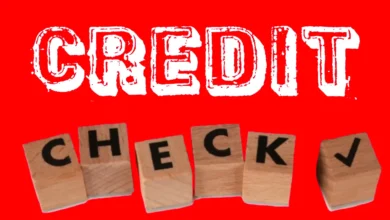Saving vs. Paying Off Debt Before a Recession: Navigating Your Financial Future

As economic uncertainty looms, many individuals are faced with the dilemma of whether to prioritize saving or paying off debt. With talk of a potential recession filling the airwaves, it’s essential to analyze your financial situation carefully and make informed decisions. While there is no one-size-fits-all answer to this pressing question, a balanced approach can often yield the best results.
Understanding the Importance of Savings
Financial planners generally advocate for establishing an emergency fund that covers three to six months of living expenses. This safety net serves as a buffer during challenging times, offering you peace of mind and financial stability should you face job loss or unexpected expenses. However, the ideal amount for your emergency fund is contingent upon your individual circumstances.
For instance, if you are young, healthy, and employed in a stable sector—such as healthcare or education—you might feel comfortable with just three months’ worth of savings. On the other hand, those in less secure positions may benefit from striving for a larger fund. A well-funded emergency account provides several advantages: it allows you more time to seek new employment without immediate financial pressure and minimizes the likelihood of dipping into retirement funds prematurely—an action that could incur hefty taxes and penalties while potentially forcing you to sell investments at an inopportune time.
The Case for Paying Off Debt
While building savings is crucial, addressing existing debts cannot be overlooked—particularly during uncertain economic times. High-interest debt can be especially burdensome; for example, average credit card APRs have surpassed 24% as of August 2025. By paying down this type of debt, you can significantly reduce your monthly financial obligations and save on interest payments over time.
Reducing debt not only frees up cash flow but also alleviates stress associated with financial insecurity. During a recession, having fewer bills can provide much-needed breathing room in your budget, allowing you to focus on essential expenses without being overwhelmed by debt repayments.
Finding Balance: A Dual Approach
Given the merits of both saving and debt repayment, many experts suggest adopting a dual approach that allocates your extra funds toward both goals. By splitting any surplus money between boosting your savings and reducing your debt load, you position yourself for greater stability regardless of economic fluctuations.
This strategy enables you to build your emergency fund while simultaneously making progress on outstanding debts. For example, if you have an additional $500 each month after covering your essential expenses, consider allocating $300 towards savings and $200 towards debt repayment. This balanced approach helps ensure that you’re preparing for potential challenges while actively working towards reducing your financial liabilities.
Safeguarding Your Finances Amid Economic Uncertainty
Before diving into strategies for financial protection, it’s crucial to understand the current economic landscape. A recession typically leads to increased unemployment, decreased consumer spending, and slower economic growth. These factors can significantly impact individual finances—whether through job loss, reduced income, or diminished savings. The uncertainty surrounding tariffs and immigration policies adds another layer of complexity; industries may face disruptions that could affect job stability and wages.
With these concerns in mind, let’s explore some practical measures you can implement to secure your financial future.
Create an Emergency Fund
One of the most effective defenses against economic downturns is having an emergency fund. Ideally, this fund should cover three to six months’ worth of living expenses. Start by assessing your current savings and determining how much you can set aside each month. Even small contributions add up over time. This financial cushion provides peace of mind and enables you to navigate unexpected challenges without resorting to high-interest loans or credit cards.
Reevaluate Your Budget
In uncertain times, it is vital to reevaluate your budget critically. Take stock of your income sources and expenses—identify areas where you can cut back or eliminate unnecessary spending. Prioritize essential expenses such as housing, utilities, groceries, and healthcare while reducing discretionary costs like dining out or subscription services. By tightening your budget now, you will have more flexibility in case of any income disruptions later.
Diversify Your Income Streams
Relying solely on one source of income can be risky in an unstable economy. Consider exploring additional income streams that align with your skills and interests. This could include freelance work, part-time jobs, or even turning a hobby into a side business. Diversifying your income not only mitigates risk but also provides additional financial security if your primary source is affected by a recession.
Invest Wisely
While market volatility may tempt some investors to pull back entirely from the stock market or other investment opportunities, it’s important to maintain a long-term perspective. If you are comfortable doing so, consider investing in recession-resistant sectors such as healthcare or utilities that tend to perform better during economic downturns. Always consult with a financial advisor before making significant investment decisions—this ensures that your strategy aligns with your overall financial goals.
Stay Informed
Knowledge is power when navigating economic uncertainty. Stay informed about changes in the economy that may impact your finances—follow trusted news sources and engage with personal finance literature or communities online. Understanding the broader economic trends will help you make informed decisions regarding spending, saving, and investing.
When Saving More Makes Sense: Prioritizing Your Financial Goals
One of the most crucial reasons to focus on savings is when you find yourself lacking an adequate emergency fund. Financial experts generally recommend having at least three months’ worth of living expenses set aside for emergencies. This baseline allows you to weather unexpected events such as job loss or medical emergencies without derailing your financial stability. While a six-month or even a twelve-month fund is often viewed as the gold standard, it’s important to start somewhere. If you currently do not have this financial cushion, prioritizing savings should be at the forefront of your financial strategy. This proactive approach provides peace of mind and gives you the time needed to explore new employment opportunities if necessary.
Preparing for Job Uncertainty
Another scenario where boosting your savings makes sense is when you have concerns about job security. If your employer has announced layoffs or hiring freezes, or if you’re in an industry that is particularly susceptible to economic downturns—such as hospitality, retail, or real estate—it’s wise to double down on your savings efforts. By increasing your financial reserves during these uncertain times, you position yourself better to handle potential disruptions in income. This strategy not only protects you from immediate financial strain but also allows you the luxury of time to seek new opportunities without the pressure of immediate financial obligations.
Managing Low-Interest Debt
Finally, if you’re fortunate enough to have low-interest debt—like a mortgage, car loan, or federal student loans—this can provide an excellent opportunity to shift your focus toward building savings. Unlike high-interest debts that can quickly accumulate and become burdensome, low-interest debts typically allow for greater flexibility in managing finances. By directing extra funds into savings rather than aggressively paying down low-interest debt, you can achieve a balanced approach that enhances your overall financial health while still meeting debt obligations.
When Paying Off Debt Makes More Sense: A Strategic Approach
Before delving into the reasons for prioritizing debt repayment, it’s essential to understand your financial situation. Financial health encompasses not just your income and expenses but also your debt levels, savings, and overall economic conditions. By assessing these factors, you can make informed decisions that align with your financial goals.
1. Falling Behind on Payments
One of the most critical indicators that you should focus on paying off debt is if you’ve fallen behind on bills. Late payments can lead to significant penalties and increase your overall debt burden. If you find yourself in this situation, catching up on overdue bills should be your top priority. Not only does this help prevent further fees and interest charges, but it also protects your credit score.
A strong credit score is vital for securing favorable loan terms in the future. During economic downturns, accessing credit can become even more challenging; having a damaged credit score may hinder your ability to borrow when you need it most. Therefore, if you’re behind on payments, concentrate on bringing your accounts current before allocating funds toward savings.
2. High-Interest Credit Card Debt
If you carry credit card debt, particularly with high-interest rates, paying it off should take precedence over saving more money. Credit cards typically come with exorbitant interest rates that can quickly spiral out of control if not managed properly. As interest rates continue to rise across the board, the cost of carrying this type of debt becomes even more burdensome.
Once you have established a three- to six-month emergency fund—an essential safety net for unexpected expenses—consider channeling any additional funds towards reducing credit card balances. This proactive approach not only decreases your financial strain but also enhances your overall financial health by lowering monthly obligations and increasing disposable income.
3. Comfort with Your Savings Level
Another scenario where paying off debt makes sense is when you feel comfortable with your savings level. If you have a solid emergency fund in place and believe that your job stability is secure, redirecting funds toward debt repayment can be beneficial. In such cases, the preference for lower monthly expenses may outweigh the desire for a larger bank balance.
Lowering your debt not only reduces monthly payments but also alleviates stress associated with owing money. It creates a sense of freedom and allows you to focus on other financial goals without the weight of debts looming overhead.
Conclusion: Strategize for Your Future
In conclusion, there’s no definitive answer when it comes to deciding whether to save or pay off debt in anticipation of a recession. Your unique financial situation should guide your strategy—whether that means prioritizing savings for peace of mind or focusing on eliminating high-interest debts to ease monthly pressures.
While the possibility of a recession can indeed be unsettling, taking proactive measures can help you safeguard your finances against potential threats. Building an emergency fund, reevaluating your budget, diversifying income streams, investing wisely, and staying informed are all essential steps toward securing your financial well-being during uncertain times.
As we navigate these challenging circumstances together as a community, remember that you’re not alone in feeling concerned about your financial future. Take charge today by implementing these strategies—and empower yourself with knowledge and preparedness for whatever lies ahead. Best regards, Finance Mate Club





